Our thoughts on Darjeeling: extracts from the book “All in a Cup of Tea”

The world of tea does not always flow smoothly – far from it. In an economic sector in perpetual motion, the landscape is reshaped year after year by the urgent need for a long-term vision rooted in organic farming and fair trade, evolving production techniques, decisions that need to be made in the face of climate change and new demands from consumers.
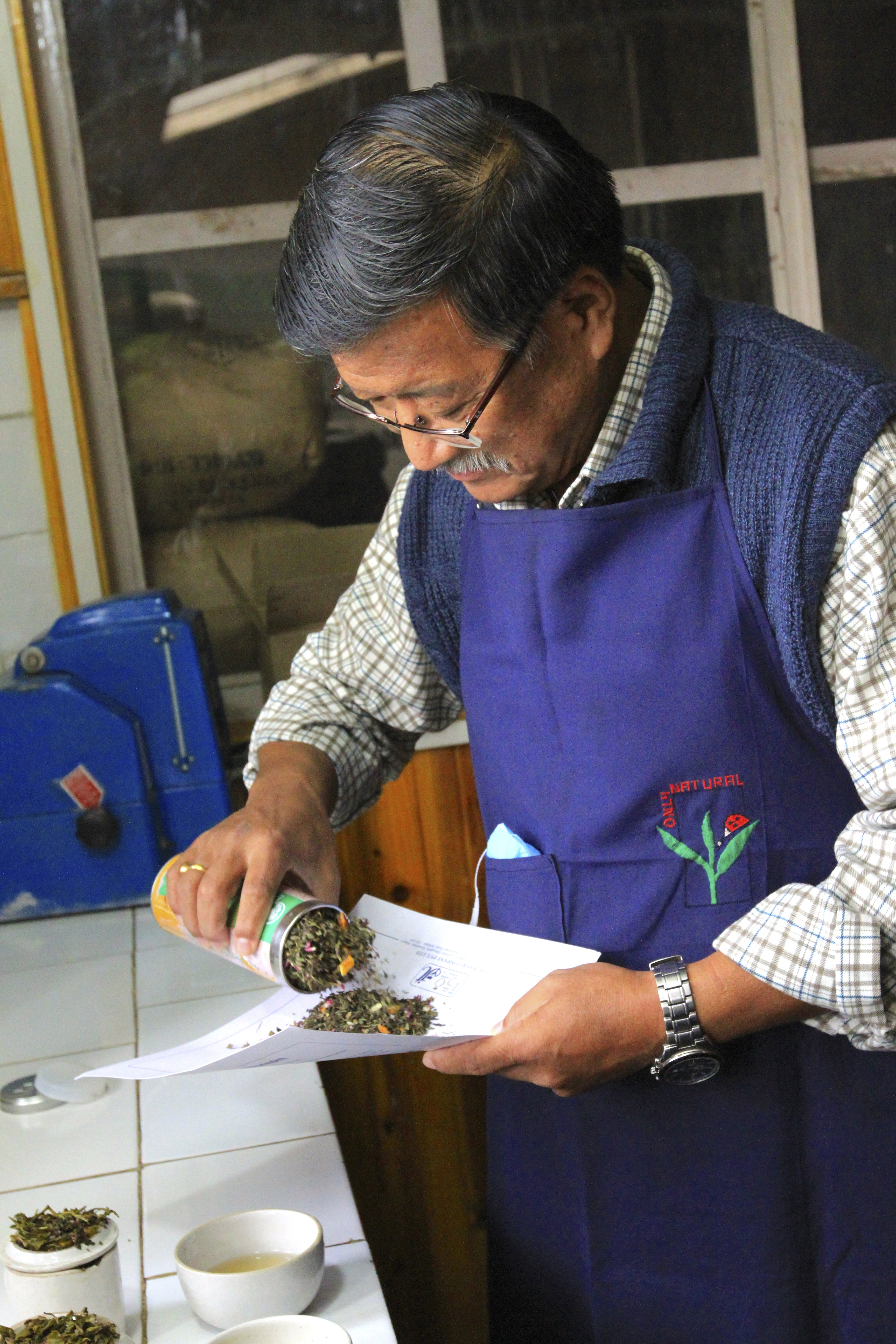
To support producers and help them adapt, there are dedicated experts on hand who are passionate about their work. Jeewan Parkash Gurung, in Darjeeling, known locally as « JP Gurung”, is one of them. He has dedicated more than 45 years of his life to the tea industry and is a key figure in the region. An inveterate traveller, passionate about everything related to camellia sinensis, he has worn many hats, heading several organisations including the Darjeeling Planters Association. He has also been a consultant, quality controller and vice-president of the local scientific research committee on tea. He is currently full-time director of the “Tea Promoter Group of Organic Gardens” whose work helps to put the Darjeeling tea-growing region at the forefront of organic and biodynamic farming, which he strongly supports.
Today almost all the PGI Darjeeling gardens are farmed organically.
When this eminent figure in the world of Indian tea asked us if we would give him our take on Darjeeling as part of a book he was writing, we were only too happy to help.
Below you can read excerpts from the interview that appears in the book « All in a Cup of Tea » published in 2020 (which we hope will eventually be available in France). We wanted to share our thoughts on the teas we love so much from this region and particularly on the way in which they are generally perceived.
Many people will know how closely our history, and in particular that of Jardins de Gaïa founder Arlette Rohmer, who has met JP Gurung many times, is linked to this beautiful region at the foot of the Himalayas.
What do you think are the strengths of Darjeeling teas?
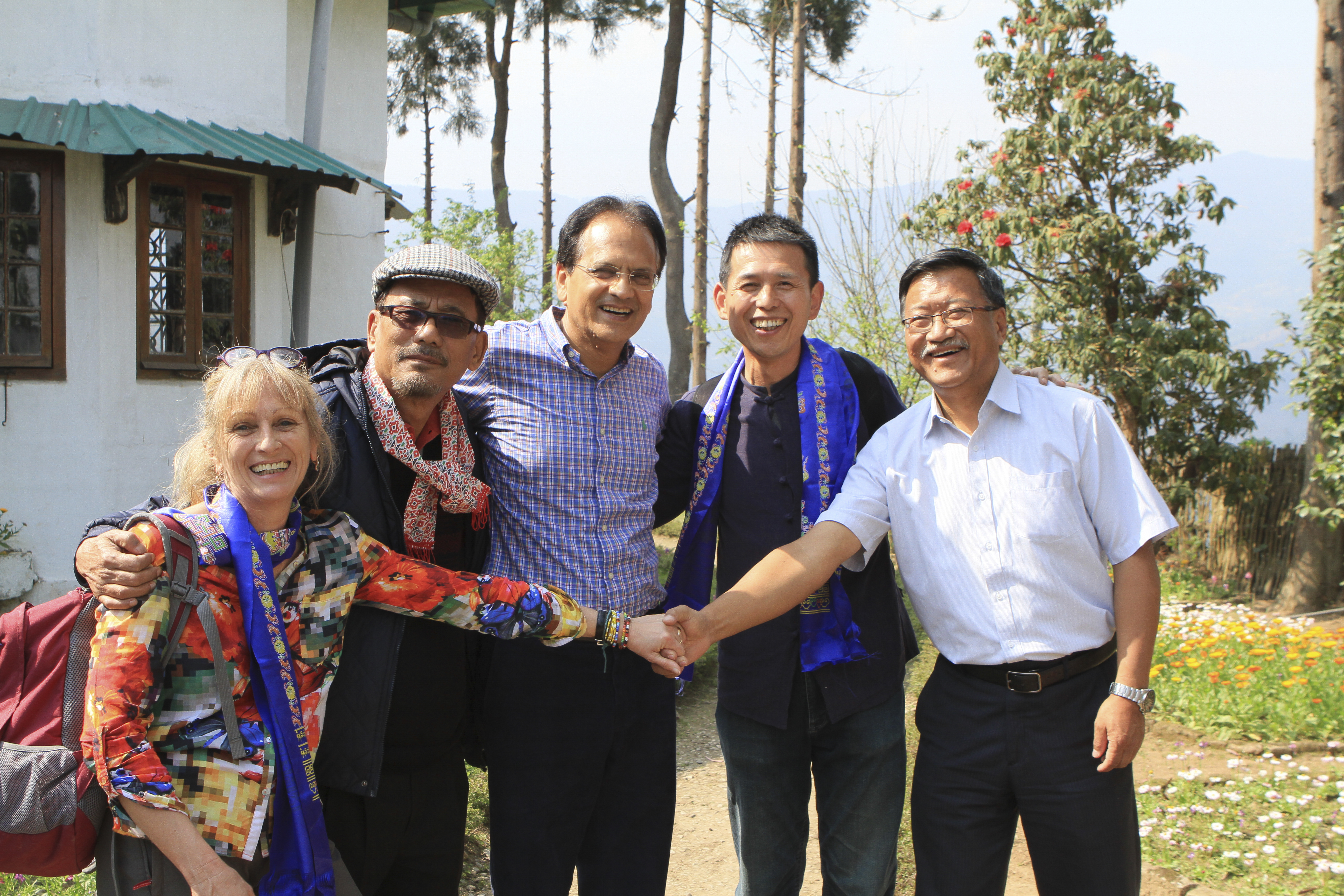
Arlette Rohmer (far left) and « JP Gurung » (far right) meet once again during a visit to the Seeyok Garden in 2016. The Darjeeling PGI makes a real difference to the prestige of Darjeeling teas: there are very few “Protected Geographical Indications” in the tea world and it is a real measure of safety and quality for consumers. It is easier to promote a tea by referring to an independent quality label;
- All the tea gardens we work with are certified organic, fair trade and some of them practice biodynamic agriculture. Consumers preoccupied with health and environmental guarantees are increasingly seeking such types of teas. Some of the gardens in Darjeeling have been farmed organically for more than 25 years and produce excellent teas. There is long-standing and profound knowledge about the growing and processing of organic teas. Our brand and the products we sell reflect this commitment.
- […] Darjeeling teas come from small gardens and small productions and are always handpicked.
- The French have a real emotional bond with Darjeeling teas reminiscent of that with the world of wine.
- The production methods of these particular teas require an enormous amount of skill.
- Darjeeling teas have a very specific and distinctive taste profile. They cannot be copied and you are unlikely to mistake a Darjeeling for any other type of tea when tasting, with the possible exception of some Nepalese teas.
- There is a growing interest in Darjeeling among connoisseurs of grand cru teas, particularly those in Japan who find Darjeelings have a freshness that is comparable to Japanese teas.
What holds back the evolution and sale of Darjeeling teas?
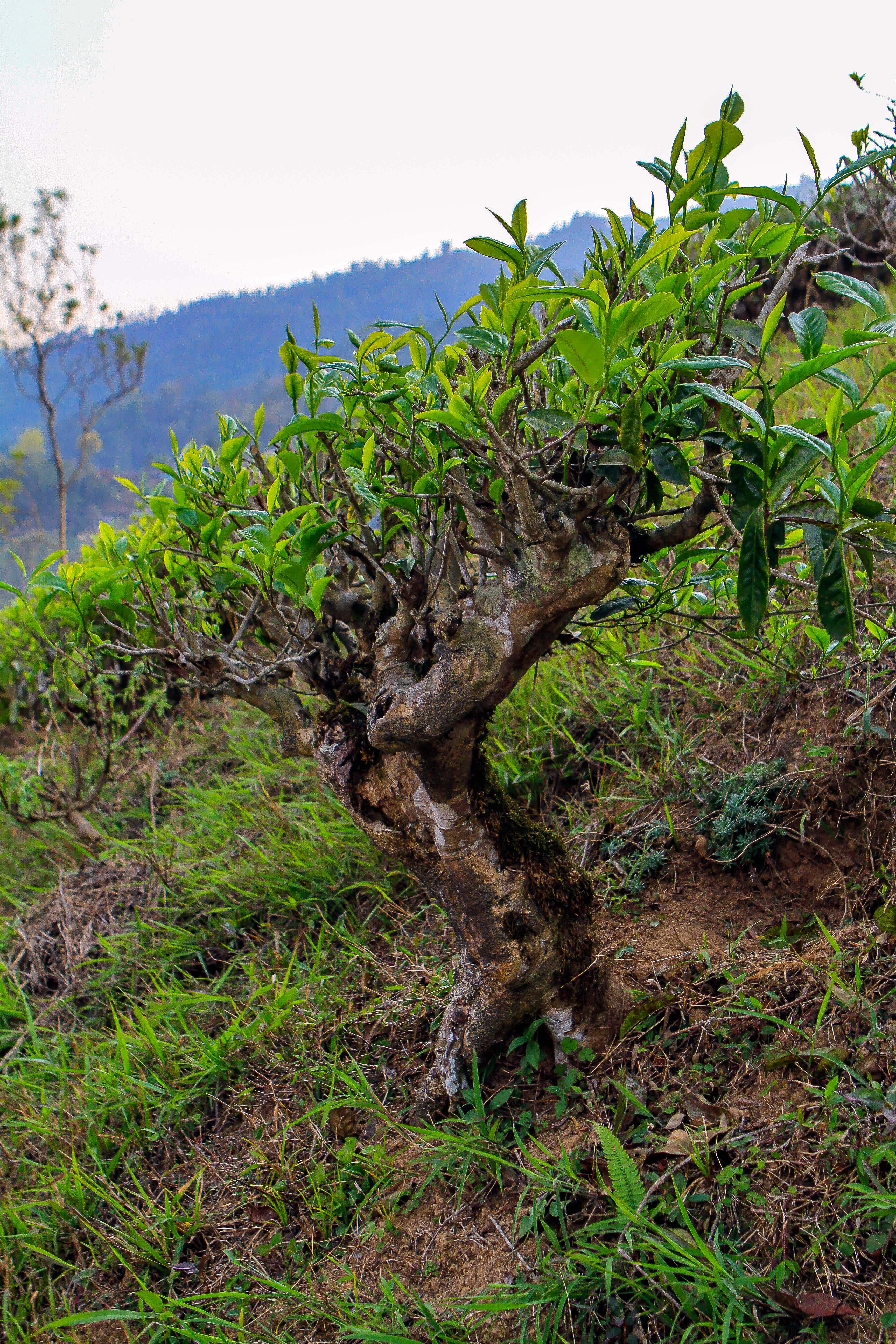
This venerable tea plant from the Singell garden dates from the 19th century (the first seeds of Camellia sinensis were planted in Darjeeling in 1847 by Dr. Arthur Campbell). As with wine, the variation in quality can be surprisingly different from harvest to harvest, mainly due to variations in the weather.
- If the water is too hard, the brew can quickly become astringent.
- Consumers sometimes have a false perception of the quality of Darjeeling teas, because the majority of teas sold are first flushes. However, there is a real opportunity/need to promote second and third harvest teas as well. The purchase price at the producer stage can also be an obstacle in the context of increasing competition in the European tea sales sector.
- Darjeeling’s designation as the “champagne of teas” can be another barrier for middle-class consumers who subconsciously associate this description with luxury goods and therefore do not buy it. Most of the customers for these teas are tea connoisseurs or belong to a financially well-off
- Despite all the efforts of the tea industry to educate consumers, it is not easy to make the classification of tea quality understandable to the beginner. The majority of consumers lack information and knowledge about tea processing methods and tea grades/qualities. This is a real problem, because consumers cannot appreciate the quality of what they are buying. In addition, the qualities indicated on the label of the products sold does not always correspond to the product itself.
- Many companies sell basic Darjeeling teas at a very high price and use marketing tricks to mislead consumers: labels like ‘grand cru’ etc. are sometimes attributed to ordinary Darjeeling teas.
What suggestions do you have for the future?
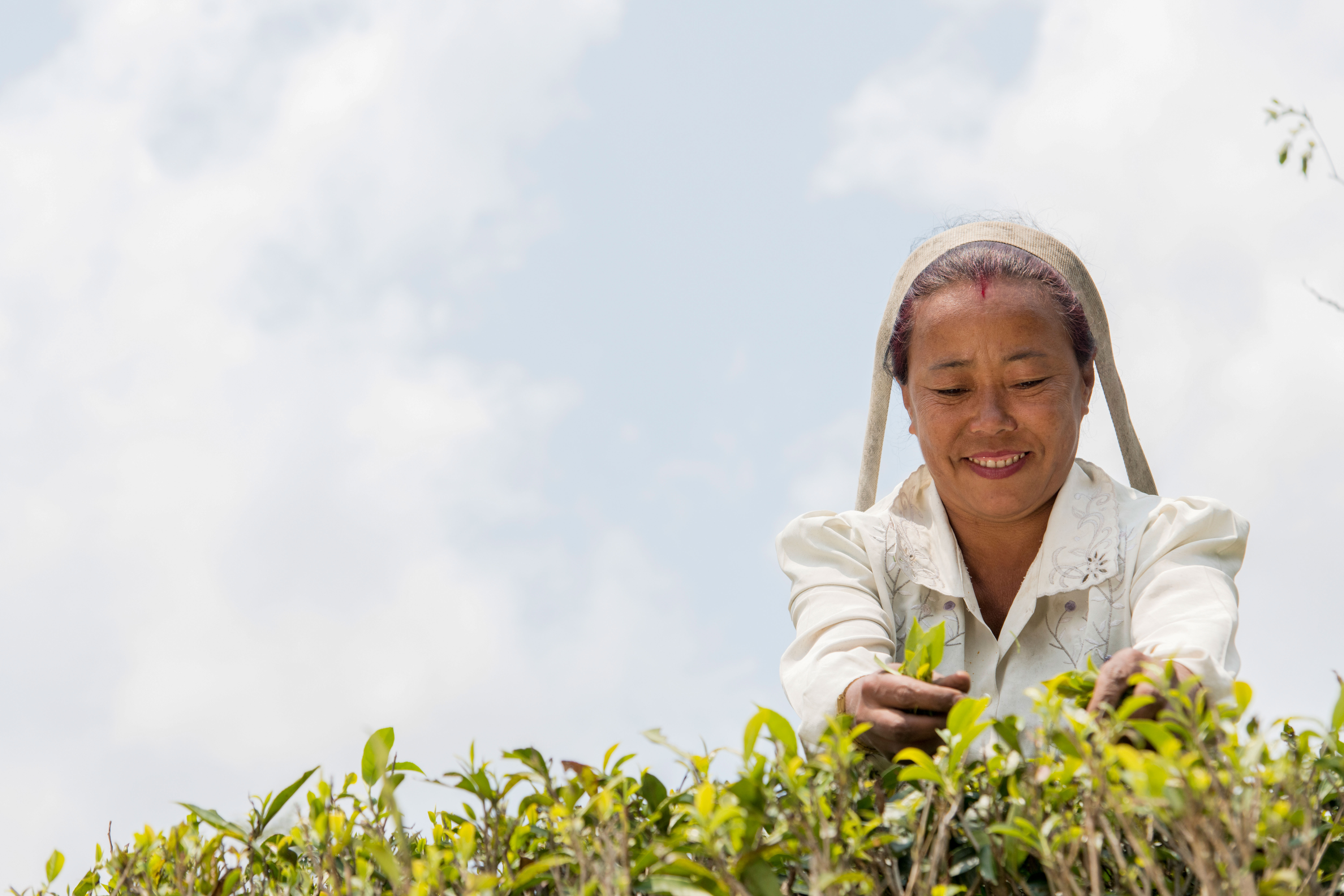
First flush harvest in the Selimbong garden Get the message across about the qualities of Darjeeling teas, harvest seasons and types.
- Maintain the unique characteristics of the Darjeeling terroir and ensure tea drinkers know what is special about it and why it is so remarkable and unique.
As you will have gathered, we believe there is still not enough known about the world of Darjeeling teas, too often reduced to either first flushes or expensive grands crus in consumers’ minds.
Every year, we try to change this perception by shining the spotlight on all the harvests (spring, summer and autumn) and by particularly emphasising the fact that there is no pecking order for a superb summer Darjeeling with its muscatel scents and a first flush, newly arrived at our premises in May. Each harvest, characterised by its seasonality, has its own distinctive flavour that it is a large part of the attraction of Darjeeling …
Finally, we make a lot of effort to offer a comprehensive range. From breakfast tea to grand cru for tastings, we believe that we can meet the needs of a large number of connoisseurs by consistently offering high-quality teas, protected by an IGP, that are organic, biodynamic and fair trade.
If you are looking for a delicious and truly different cup of tea, especially of black tea, we strongly recommend you seek out one of these teas which really are one of a kind.
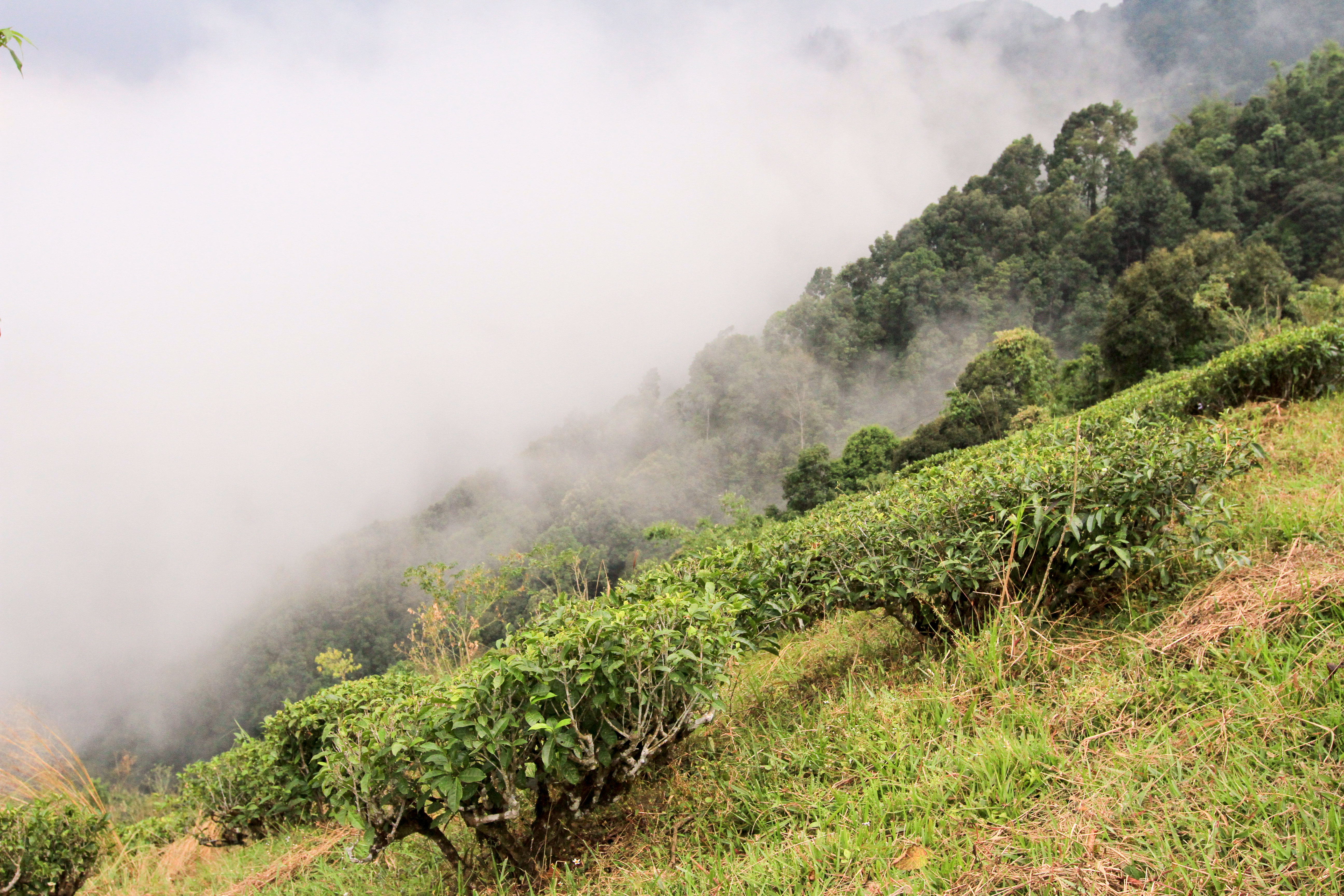
Écrit par Les Jardins de Gaïa
Pionniers sur le marché des thés et tisanes bio et équitables, Les Jardins de Gaïa proposent, depuis 1994, des grands crus nature, des classiques et des créations maison originales. Privilégiant les petits producteurs et les récoltes manuelles, ils ont développé au fil des années une gamme généreuse et variée de thés, rooibos et tisanes aux qualités gustatives reconnues, ainsi qu’une gamme d’épices bio et prémiums proposée sous la marque Terra Madre. Tel un jardin épanoui, la force des Jardins de Gaïa tient dans la diversité des terroirs et l’engagement des hommes qui la travaillent…
